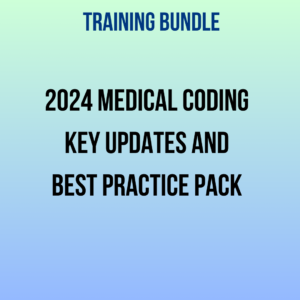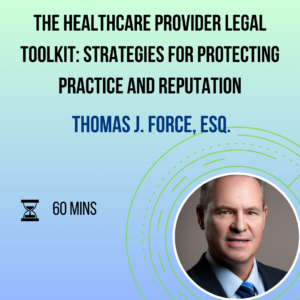Marketing and Empathy Psychology
HIPAA Master Class - Essential Training & Use Cases
Lorem ipsum dolor sit amet, consectetur adipiscing elit. Ut elit tellus, luctus nec ullamcorper mattis, pulvinar dapibus leo.

Tab #1
Tab #2
Tab #2
Tab #1
Lorem ipsum dolor sit amet, consectetur adipiscing elit. Ut elit tellus, luctus nec ullamcorper mattis, pulvinar dapibus leo.
Tab #2
Lorem ipsum dolor sit amet, consectetur adipiscing elit. Ut elit tellus, luctus nec ullamcorper mattis, pulvinar dapibus leo.
Tab #2
Lorem ipsum dolor sit amet, consectetur adipiscing elit. Ut elit tellus, luctus nec ullamcorper mattis, pulvinar dapibus leo.
Webinar 1
Webinar 2
Webinar 3
Webinar 1
The Role & Responsibility of the HIPAA Privacy Officer: Essentials Duties, Qualifications, and Best Practices
- DURATION : 60
- DATE / TIME(EST) : August 20, 2024 | 1:00 pm
- SPEAKER : Mark R. Brengelman
In today’s intricate health care environment, the basic provisions of privacy for protected health information (PHI) have become more complex, necessitating the appointment of a Privacy Officer for covered entities under HIPAA laws.
HIPAA mandates various security rules concerning PHI, starting with the role of the Privacy Officer. These federal requirements apply not only to covered entities but also to their business associates.
Key Questions:
- What distinguishes a HIPAA Compliance Officer, a Privacy Officer, and a Security Officer?
- Can a health care entity merge these functions and duties?
- Are these three distinct roles, or can they be consolidated?
- Due to the constant evolution of HIPAA regulations, covered entities must adapt to increasing responsibilities, expanded job duties, and heightened resource demands to maintain patient confidentiality and digital security, all primarily managed by the Privacy Officer.
This webinar delves into the roles and responsibilities of the Privacy Officer, the necessary qualifications, and practical strategies for managing privacy functions effectively.
Webinar Agenda
Introduction:
- Does HIPAA require a Compliance Officer, Privacy Officer, and Security Officer?
- Understanding the necessity of designating a Privacy Officer for covered entities and their business associates, as mandated by federal regulations.
In-depth Discussion:
- Detailed examples of the duties and qualifications of a Privacy Officer.
- Comprehensive review of job responsibilities pertinent to the Privacy Officer role.
- By addressing strict HIPAA compliance laws, this webinar aims to alleviate fear, uncertainty, and doubt. Learn how to ensure your health care organization complies with HIPAA privacy requirements through an effective Privacy Officer.
Webinar Highlights
Problems and Solutions:
- Identifying the core elements of HIPAA compliance concerning the Compliance Officer, Privacy Officer, and Security Officer.
- Analyzing the mandatory identification and designation of the Privacy Officer.
- Examples of Privacy Officer duties and responsibilities.
- Reviewing the desired qualifications for a Privacy Officer.
- Discussing an extensive list of job duties for a successful Privacy Officer.
Who Should Attend
- Health care attorneys
- Corporate compliance officers in health care
- Medical records staff in medical offices and health care entities
- Hospital attorneys
- Health care practitioners who are covered entities
- Law enforcement officers in health care compliance
- State boards and agencies overseeing state licenses for health care professionals
Join us to gain a comprehensive understanding of the essential role of the HIPAA Privacy Officer in maintaining compliance in the ever-changing health care landscape.
Webinar 2
E-mailing, Texting, and The Use of Personal Devices by Health Care Professionals – HIPAA and Privacy Myths vs Reality in 2024
- DURATION : 60
- DATE / TIME(EST) : August 20, 2024 | 1:00 pm
- SPEAKER : Mark R. Brengelman
Overview:
This informative webinar begins with the most basic of questions: Does the HIPAA Privacy Rule permit health care providers to use e-mail to discuss health issues and treatment with their patients?
Find out the answer and examine how the privacy rules of HIPAA allow covered entities and health care providers to communicate electronically, such as through e-mail or texting, with their patients and with other health care practitioners, but only provided those health care practitioners apply reasonable safeguards when doing so.
This is mandated by federal administrative regulation.
Specifically, certain precautions need to be taken when using e-mail to avoid unintentional disclosures, such as checking the e-mail address for accuracy before sending, or sending an e-mail alert to the patient for address confirmation prior to sending the message.
Further, while the HIPAA privacy rules do not prohibit the use of unencrypted e-mail for treatment-related communications between health care providers and patients, other safeguards should be applied reasonably to protect privacy, such as limiting the amount or type of information disclosed through the unencrypted e-mail. The health care practitioner may include the least amount of protected health information in an unencrypted e-mail.
In addition, covered entities must make sure any transmission electronically of protected health information follows the HIPAA Security Rule requirements of federal law.
Patients have the right under the HIPAA privacy rules to request and have a covered health care provider communicate with them by alternative means or at alternative locations, if reasonable. For example, a health care provider should accommodate an individual’s request to receive appointment reminders via e-mail, rather than on a postcard, if e-mail is a reasonable, alternative means for that health care practitioner or provider to communicate with the patient.
However, if the use of unencrypted e-mail is unacceptable to a patient who requests confidential communications, other means of communicating with the patient, such as by more secure electronic methods, or by mail or telephone, should be offered and accommodated. The patient may also designate a particular e-mail address to use, such as the patient’s personal e-mail and not their work e-mail.
Patients may even initiate communications with a health care practitioner or other provider using e-mail. If this situation occurs, the health care provider can assume (unless the patient has explicitly stated otherwise) that e-mail communications are acceptable to the individual. This is implied consent and implied usage.
If the health care practitioner or other provider feels the patient may not be aware of the possible risks of using unencrypted e-mail, or has concerns about potential liability, the provider can alert the patient of those risks, and let the patient decide whether to continue e-mail communications.
Uncertainty exists when faced with strict laws. Erase the fear, uncertainty, and doubt by reviewing how patient consent and communication practices can be updated to allow for specific means of electronic communication.
Further erase the uncertainty, fear, and doubt about what other laws, such as state licensure laws, apply to the confidentiality of patient protected health information. Review further some examples of specific state licensures laws that apply to electronic communications that may be stricter than even HIPAA itself.
This webinar is thus an advanced overview of the many rules, both by HIPAA at the federal level and in state licensure laws, that govern e-mailing and texting with patient and with other health care practitioners.
Learning Objectives:
- The basics of HIPAA privacy
- The basics of HIPAA and the use of electronic communications
- Examples of state licensure laws governing protected health information
- Elements of privacy notices and communications practices with patients
- Bonus: website confidentiality and privacy disclaimers for the health care practitioner with their own website.
Why should you Attend?
While the basic provisions of privacy for protected health information are well known, their application in today’s world of electronic and personal communication devices is complex – such as texting, e-mailing, and using personal devices such as smart phones and tablet computers. In addition to HIPAA rules, various state licensure laws exist to require confidential information be kept confidential.
This is more important than ever in our new work-from-home and mobile society.
Many security rules regarding protected health information involve how and when protected health information is to be kept confidential and not accessible to others outside of direct patient care. But what is protected health information? Can communications not involving such protected health information be transmitted by non-confidential and non-secure methods? Is even a patient name protected health information?
The ability to text or e-mail health care practitioners and other staff and patients has become a priority for many health care entities and practitioners, especially solo health care practitioners with limited support staff. Maintaining patient privacy and confidentiality is necessary to make sure covered entities meet compliance standards of HIPAA and state licensure laws.
Although e-mailing and texting are convenient for the health care practitioner and patient, these communication methods have security risks and inherent pitfalls. Implementing e-mail and text solutions in the health care setting is a complex issue and several factors must be addressed.
Erase the fear, uncertainty, and doubt about exactly how a health care practitioner may use modern texting and e-mailing, both within their own health care organization or facility and to the outside world of patients. Find out how these communications may or may not be required to be retained by the health care practitioner.
Who Should Attend:
Health care law attorneys; licensed health care practitioners in private practice who accept Medicaid; medical directors of health facilities; office managers and medical directors of private medical offices; health care managers and executives; corporate counsel in health care; health care administrators; university faculty in health care and medical health policy; allied health professionals in graduate-level medical education across the many health care professions; corporate compliance officers; human resource directors and departments; state Medicaid officials
Webinar 3
HIPAA Privacy Exceptions for Law Enforcement Purposes Applied to Health Care Professionals
- DURATION : 60
- DATE / TIME(EST) : August 20, 2024 | 1:00 pm
- SPEAKER : Mark R. Brengelman
HIPAA Updates for the Exceptions for Law Enforcement Purposes
This advanced webinar answers the following questions: What power does the state have to use a HIPAA exception to confidentiality? How does one comply with a request when it does apply?
What medical or other records are obtained that apply to a civil or to a criminal investigation? What pitfalls are there to noncompliance?
This webinar goes over the many law enforcement exceptions where health care practitioners are faced with demands for a law enforcement or public purpose that overrides the strict confidentiality of HIPAA and a patient’s expected right to privacy.
Both criminal and civil public purposes for law enforcement exceptions exist that may burden the health care practitioner with requests that must be complied with.
Take a deeper look into how state licensure agencies go about their unique government investigations and obtain protected health information to further their own state-mandated, investigative purposes.
Agenda:
- The basics of HIPAA privacy;
- The basics of HIPAA privacy exceptions with patient consent;
- Exceptions to HIPAA privacy for law enforcement purposes for civil matters;
- Exceptions to HIPAA privacy for law enforcement purposes for criminal matters;
- How exceptions to HIPAA privacy are applied by law enforcement agencies, with an emphasis on state licensure boards and agencies;
- How you may comply to a request for Protected Health Information when the patient is in trouble and law enforcement is involved;
- How you may comply to a request for Protected Health Information when you are in trouble;
- Case law from the courts regarding HIPAA privacy exceptions for law enforcement purposes.
Why should you attend:
You should attend this webinar for information on the many HIPAA exceptions for law enforcement purposes. While the basic provisions of privacy for protected health information are well known for covered entities, exceptions abound for the various law enforcement purposes as applied to both the federal and state government and its law enforcement activities.
You must erase the fear, uncertainty, and doubt by knowing the medical records privacy exceptions for law enforcement under HIPAA. Health care professionals must be aware of the many exceptions to confidentiality for protected health information when the government comes calling.
These can include both criminal and civil investigations as well as administrative investigations and actions. Erase the uncertainty and doubt that exists when the health care practitioner is confronted with a police demand for information or a demand from a government investigator.
What can you release? To whom? Do you have to notify the patient? Should you notify the patient? What must you document as a permitted disclosure when the police come calling?
Find out in this informative webinar that arms you with a fuller knowledge of the HIPAA privacy exceptions for law enforcement purposes.
Who Should Join:
Health care law attorneys; licensed health care practitioners in private practice; medical directors of health facilities; office managers and medical directors of private medical offices; health care managers and executives; corporate counsel in health care; health care administrators; university faculty in health care; allied health professionals in graduate-level medical education across the many health care professions; corporate compliance officers
Webinar Information
- DURATION : 75
- DATE / TIME(EST) : APRIL 10, 2024 | 1:00 PM
- SPEAKER :
Share this event
Related products
-
Sale!

2024 Medical Coding Key Updates Best Practice Pack
$499.00 – $699.00 Select options -

E/M Coding Changes for 2024
$199.00 – $349.00 Select options -

The Healthcare Provider Legal Toolkit: Strategies For Protecting Practice And Reputation (Stark, False Claims Act, Anti-Kickback Statute and HIPAA)
$199.00 – $349.00 Select options -

The Disruptive Physician Practitioner: A Danger to The Hospital’s Operation
$199.00 – $349.00 Select options



